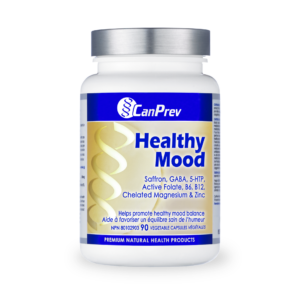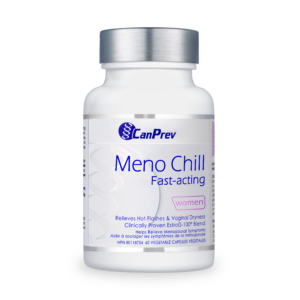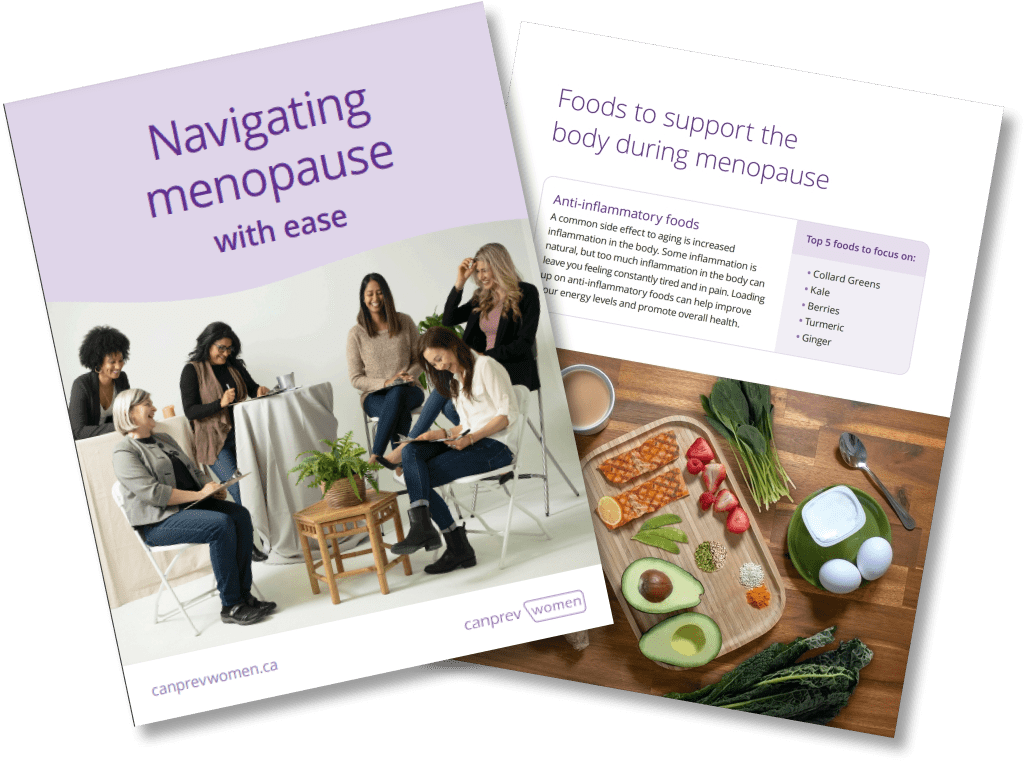Maybe you can relate: when you’re stressed, tired, busy, or feeling down you’re likely not in the mood, right? Libido, or the desire to have sex, is closely tied to both your physical and mental state at any given time. Declining libido can be caused by many common life changes – getting busier, experiencing more stress than usual, feeling depressed or anxious, transitioning into menopause… If you’ve noticed that your libido isn’t quite what it used to be, adding some emotional and nutritional support may be just the thing to reinvigorate you!
Common triggers for declining libido
Stress and anxiety
Stress is a natural coping method and part of your body’s survival mechanism. When you encounter stress, whether that be deadlines at work, money troubles or relationship problems, your body goes through a series of changes known as the “fight or flight response”. At the first sign of stress, your body will release stress hormones (like adrenaline and cortisol) to increase heart rate, blood pressure and breathing rate. To properly distribute nutrients and resources, your body will prioritize and redirect energy from non-essential functions. As you can imagine, having a high sex drive is not at the top of the priority list when it comes to essential bodily functions.
This stress response is designed to be short-term, which was useful when we were more at the mercy of the elements (and any tigers that may have been roaming around). But in today’s age, unpaid bills, traffic jams, work deadlines, changing relationship dynamics, or any number of unavoidable human experiences are more likely to trigger this response. Over time, stress hormones can result in prolonged low libido.
Like stress, anxiety also triggers the fight or flight response, but the difference is that it may not require a stimulus. Someone can be anxious day to day with their fight or flight constantly engaged, even when there is no stressor around. Not only does this affect their general health, but mood, sleep and libido often drop significantly.
Entering menopause
Hormonal changes, including the natural decline of estrogen and progesterone production common with menopause, can have a huge impact on libido. During menopause, the body shifts from producing enough hormones to release an egg each month, to a sharp decrease in progesterone and estrogen production. This can result in unfamiliar and uncomfortable changes, such as weight gain, hot flashes, insomnia, vaginal dryness and yes, reduced sexual desire. It’s a time of great change, but once understood, the symptoms can be easily managed.
Depression
Of the many feelings depression can cause, fatigue is one of the most common. Those with depression often have decreased energy and this can impact their ability to enjoy the things they normally enjoy, such as sex. In fact, a change in sex drive is a key symptom in diagnosing depression. Some people may feel negatively about themselves, causing sex to be the last thing on their minds.
Tips to improve your libido
Get your chill on
Sometimes getting into a deep relaxation mode can be challenging. For the days when your mind just won’t stop racing, a nourishing combination of ashwagandha and L-theanine in CanPrev’s Adrenal Chill can support your body’s response to stress. This full spectrum ashwagandha extract is included for its ability to restore balance to the body, and it’s clinically shown to support sexual health in women. When the nervous system is “chilled” and the “stress alarms” have stopped sounding, keeping the flame alive with your partner will come naturally!
Boost your mood
For some people, scheduling time for your mind and body to take a break can work wonders for getting into the mood. Whatever your mental health routine may be, consider supporting your mind during this transition with a blend of targeted nutrients. CanPrev’s Healthy Mood contains key nutrients for healthy mood management like B vitamins, GABA, 5-HTP, magnesium and zinc. These nutrients, along with consistent lifestyle and self-care practices, help to provide mind-boosting benefits, alleviate mild to moderate symptoms of depression and improve mood.
Support your body for menopause
Meno Chill is designed to relieve those uncomfortable symptoms that can come with menopause. Featuring EstroG-100® herbs, KSM-66® ashwagandha and zinc bis-glycinate, this therapeutic blend can help you navigate the outcomes of fluctuating estrogen levels, like hot flashes and night sweats. Pair this with a diet high in healthy fats (including omega-3 fats and vitamin D) to watch your symptoms subside!
Feel good with exercise
In addition to the physical benefits of working out, exercising can help your brain and body produce chemicals that improve your energy, mood and well-being. Have you ever heard of a “runner’s high”? Even if you’re not a runner, committing to a weekly session of plyometric exercises like push-ups, squats, burpees and lunges can help your body produce those feel-good endorphins.
Keep up with the date nights
In this busy world, any time you can prioritize quality time with your partner, away from distractions, is a great way to stimulate your libido. It’s difficult to be in the mood when you’re constantly thinking about your never-ending to-do list, so why not block out time, clear your schedule to catch up, and build on your connection with your partner?
Don’t compare yourself to others
Every situation and partnership is unique – there is no one standard to aim for. Do what works best for you and your relationship, and try not to get caught up in comparison. When you’re not feeling like it, simply holding hands or spending quality time together can be intimate too. There is no “right” amount of sex!
Keep going
The desire for sex shifts day to day, even hour to hour. Rest assured that everyone finds themselves in a rut from time to time. But if you are noticing a consistent decrease in libido to the point where it is interfering with your relationship and mental health, don’t be afraid to turn things around by getting support through nutrition. It can make a world of difference!
Sources:
Ciappolino, V., Mazzocchi, A., Enrico, P., Syrén, M. L., Delvecchio, G., Agostoni, C., & Brambilla, P. (2018). N-3 Polyunsatured Fatty Acids in Menopausal Transition: A Systematic Review of Depressive and Cognitive Disorders with Accompanying Vasomotor Symptoms. International journal of molecular sciences, 19(7), 1849. https://doi.org/10.3390/ijms19071849
Hamilton, L. D., & Meston, C. M. (2013). Chronic stress and sexual function in women. The journal of sexual medicine, 10(10), 2443-2454.
Jiannine L. M. (2018). An investigation of the relationship between physical fitness, self-concept, and sexual functioning. Journal of education and health promotion, 7, 57. https://doi.org/10.4103/jehp.jehp_157_17
Kane, L., Dawson, S. J., Shaughnessy, K., Reissing, E. D., Ouimet, A. J., & Ashbaugh, A. R. (2019). A review of experimental research on anxiety and sexual arousal: Implications for the treatment of sexual dysfunction using cognitive behavioral therapy. Journal of Experimental Psychopathology, 10(2).


